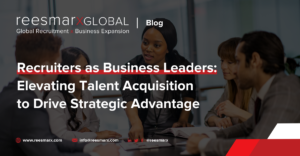The current global job market presents many challenges for employers, who are under increasing competition for qualified candidates. In many professional fields, the demand for experienced candidates is greater than the availability of them, particularly within specialties such as technology, management and executive leadership.
The credentials and work history provided by applicants is the starting point for qualifying suitable candidates. Employers can spend up to $50,000 or more recruiting and onboarding the right individual for their team, and retention is key to ensuring that it is a rewarding long-term investment for an organization.
The best way to verify the experience and skills of candidates applying for the role(s) is to administer a customized set of pre-employment assessments, that can provide valuable insights into the essential and soft skills required for the role. For professionals currently seeking a new employment opportunity, familiarizing yourself with the types of pre-assessment tests that may be administered can improve the success of your interview. It can also help you determine if the employer and role is a good fit for you in terms of culture, work environment and expectations.
Our global recruiters help connect talented business professionals to high-growth organizations in thirty countries. For the past twenty-years, we have watched pre-employment tests become normalized as part of the interview and placement process.
If you have been asked to complete one, then you can assume that you have made it to the final level of review, where hiring managers are evaluating your skills and traits against similar applicants. In this article, we will share some of our own insights and tips to help you prepare.
Favorable Skills That Employers Are Looking For
Hiring a new employee is a complicated process. Employers who are hiring without the assistance of a recruitment agency are inundated with hundreds, and possibly thousands of applicants, CV’s and cover letters to review. Hiring the wrong person is costly for any business, and multiple interviews and assessments can help narrow the selection down to the most qualified and talented prospects.
There are five core fundamentals and evaluation steps within every interview process:
1. Communication Skills
Are you applying for a job that requires oral communication? The ability to speak with confidence in a concise but friendly way is imperative in some roles, such as human resource management, inbound sales, marketing, public relations or customer service.
If you are interviewing for a position that requires multilingual skills, employers will test both the oral and written ability, where English is your second language.
2. Problem Solving and Analytical Abilities
Do you love a good challenge? Are you the type of person who will dive in and figure out why something isn’t working, or access other members of your team to help resolve it? Some people are natural problem solvers and they enjoy the challenge. Other types of personalities prefer consistent job functions that do not change over time. They prefer a narrower scope of responsibilities that they can master, without having to innovate work-around solutions.
3. Interpersonal and Soft Skills
When asked the question “do you work well under pressure?” what is an employer trying to discover about your strengths and personality in adverse situations? Everyone would like to respond that they can easily navigate difficult, aggressive, or high-speed workflow environments, because that answer weighs favorably in an interview. But if that is not your strength, as a candidate you are not doing yourself any favors by misrepresenting your abilities. It could be a bad fit for you, and consequently for the employer and team you will be working with.
Always be honest in an interview, and with your responses in a pre-employment assessment. The tools are designed not only to help employers find the most suitable candidate, but also to help the prospective hire consider what the work environment will be like. Employers want to be happy with their new employee, and they want the new employee to onboard successfully, and become part of a productive team.
If you find multitasking, business travel, public speaking or networking awkward or difficult, focus on roles that require skills that play to your professional strengths instead. If you have a high level of empathy and EQ (emotional IQ) that customers and colleagues respond well to, then share that information in the interview. It can help demonstrate that you are the most qualified professional for the job!
Administering a lie detector test during the course of an interview is illegal in the America’s and in many countries across EMEA.
4. Leadership Abilities
It takes a broad and diverse range of skills to not only manage your own productivity, but to inspire, lead and support the productivity of a team. Do you see yourself in a management role? Are you working on improving skills and utilizing training opportunities to develop your natural leadership abilities?
Leadership is not dictatorial, but rather the ability to guide a team of diverse skills to reaching shared goals and benchmarks for the organization. Comfort with being both a coach and a source of discipline for your team, while managing the productivity and output of your business unit becomes a responsibility that managers and executives are directly accountable for.
As your performance outcomes depend on mobilizing a team of workers, you have to be ready to push, pull and sometimes lift individuals to work at their potential. And that takes a lot of confidence, organization skills and relationship management. And for C-Level executives, integrity tests have become the norm and part of the interview process.
5. Functional Knowledge
While the CV will help demonstrate prior employment history and experience, depending on the role, you may be required to participate in a test that measures your ability to fulfill essential deliverables of your role. For technology workers, this may be through automated problems that measure your software (or hardware) skills, providing a score that the employer will use comparatively with data from other applicants.
In other circumstances, the employer may provide you with a problem to solve and ask you to resolve an issue in a case study, to demonstrate how your functional knowledge and soft skills work together.
What Kind of Pre-Employment Assessments Are Administered?
There are countless pre-employment assessments available today for hiring managers, recruiters and employers. It is impossible to know what questions or skill areas you will be asked to demonstrate as a candidate. However, there are some that are widely used that you can familiarize yourself with.
- Personality tests such as the The 16pf® Questionnaire
- The Criteria Cognitive Aptitude Test (CCAT). Find a preparation guide for this test here.
Be prepared for the pre-employment assessment; you may not be taking the test alone. Larger organizations may call in all ‘finalists’ considered and place them in the same area to be evaluated. If you are in a room with other applicants, be polite but minimize conversations until the assessment is over.
How to Prepare for an Assessment Before Your Interview
Get warmed up before your assessment with some cognitive games, challenges and quizzes at JobFlare, by Criteria Corporation. This app is available on the Google Play store for desktop browsers, or on iOS for Apple users.
What we really like about this resource is that candidates can save their activities and share data (or a link to their profile) with employers during the interview process. By offering your results without being asked, you can help elevate your interview performance, and demonstrate that you are aware of your interpersonal and technical strengths.
Don’t focus on rehearsing answers that ‘sound good’ during an interview or assessment. Instead, spend the time preparing through self-evaluation and choosing the 3-4 strengths that you would like to successfully communicate in your interview. Because the last thing you want to do, is appear rehearsed instead of authentic as you pitch your abilities and strengths.
If you have enjoyed our article, share your comments with us below. What kind of pre-employment assessments have you encountered on your job search? Were you provided with the results after the testing? Let us know in the comments below.






